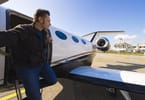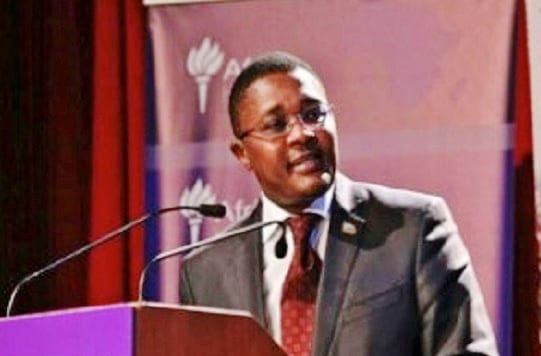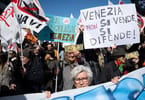ಜುಜ್ಸೆಫ್:
Well maybe, maybe not. I think we remain financially responsible, and we have always been financially focused and much less market-focused or market-share-focus. That’s another language and that’s something which I’m speaking [inaudible 00:27:32] language. Other CEOs of other carriers are speaking, but how are our strategies is no different to the subject what we have always been pursuing, our strategies to create shareholder value and being financially responsible means slightly different things. Given the current times. We are scheduling flights and operating the fleet against cash-positive contributing outcome. So, what we do has to contribute to cash.
So it has to be a better option than keeping the aircraft underground, I think that’s the measure what you are putting in place. But if I look at our operations today, we are largely overall cash neutral, so we are not losing cash. So we are preserving our cash positions. It’s just showing how strong we are from a liquidity perspective and from a cost perspective because obviously your resilience increases significantly should you operate this business at lower costs than your competitors?
ಪೀಟರ್:
József, when we last talked, you were on the brink of setting up the Abu Dhabi operation, which opens up an entirely new market, which does necessarily to some extent involve connectivity over that hub, particularly into the South Asian market. Things have changed dramatically there, both in Abu Dhabi and the South Asian market. Do you have any feel for, in your discussions with the Abu Dhabi people, what the timeframe is going to be before things start to look better in that respect?
ಜುಜ್ಸೆಫ್:
Well, first of all, I think I should say that the strategic fashion of [inaudible 00:29:18] Abu Dhabi has not changed. I would even say that probably it has become a better proposition, looking at it from a long-term strategic perspective, simply because I think it will force the industry to restructure. And we may have market opportunities we would not have had otherwise. So, from a strategic perspective, I’m very upbeat on Abu Dhabi, and clearly, I think that this is a right move for [Cazar 00:29:48] and we will see significant returns on our investment. Short-term is difficult because Abu Dhabi remains a closed market. I think we are hearing various plans that shortly within maybe a few months their market will open up.
I think it is still to be seen, but we take the time to sort the strategic fundamentals out during this period to make sure that we are getting access to markets and whenever the market is ready to go, we can go with that immediately and we can scale up the business. But if we could, one of the things what we have clearly learned during the last 15 months is being agile, but also being agile in terms of moving operational capacity. So moving up and down very, very quickly, we have a very flexible labor force. We are very flexible in decision-making in a way. And to some extent you can argue that it is opportunistic and yes, it is opportunistic because we are not really into this paradigm of strategic markets and all sorts of things.
We have not pursued a better strategy than profitability can be seen but there is no better strategy than profitability and creating shareholder value and wherever we see the opportunity to create more shareholder value. We seem to just move capacity against those opportunities. So we have been incredibly quick and efficient with regard to moving capacity around that, but not only aircraft but moving people with the aircraft, pilots, and cabin crew. And I think this will continue to be the case going forward, at least for the next period of time, because I don’t think we are still seeing the full potential from our perspective of COVID-19, because the recovery phase of the industry it will be very interesting. And as discussed at the beginning, we shall see who will make it and who won’t and what markets will be left behind and what additional opportunities we are going to be seeing then.
ಪೀಟರ್:
It’s very comforting to hear you say that József, because to some extent, we seem to be a voice in the wilderness saying the same thing that I hope there is a recognition that people who should know these things, that something’s got to change very dramatically, but obviously you’re going to help in that process and perhaps lead the way. József time’s up. Thanks very much for being with us, nicely vaccinated, nicely COVID tested, and safe to roll. I hope things go well. I look forward to speaking to you soon. Maybe you’ll have a good summer. I hope you do.
ಜುಜ್ಸೆಫ್:
We shall see Peter but thank you very much. Thank you for your invitation. It’s been my pleasure.
ಪೀಟರ್:
Thank you very much for being with us. Bye-bye, cheers.
ಜುಜ್ಸೆಫ್:
Thank you. Bye-bye.
#ಪುನರ್ನಿರ್ಮಾಣ ಪ್ರವಾಸ
ಈ ಲೇಖನದಿಂದ ಏನು ತೆಗೆದುಕೊಳ್ಳಬೇಕು:
- I think it is still to be seen, but we take the time to sort the strategic fundamentals out during this period to make sure that we are getting access to markets and whenever the market is ready to go, we can go with that immediately and we can scale up the business.
- And I think this will continue to be the case going forward, at least for the next period of time, because I don’t think we are still seeing the full potential from our perspective of COVID-19, because the recovery phase of the industry it will be very interesting.
- I would even say that probably it has become a better proposition, looking at it from a long-term strategic perspective, simply because I think it will force the industry to restructure.






















